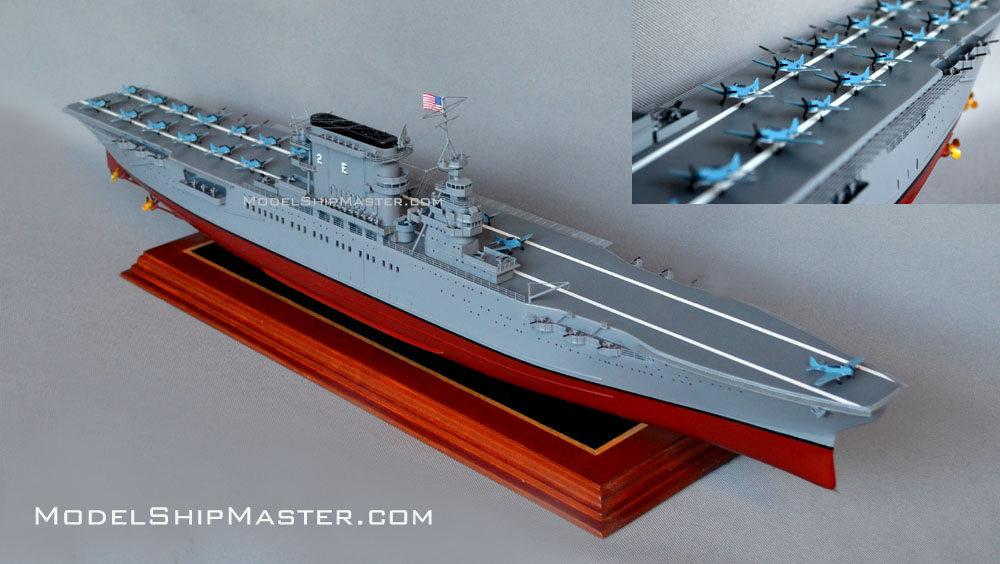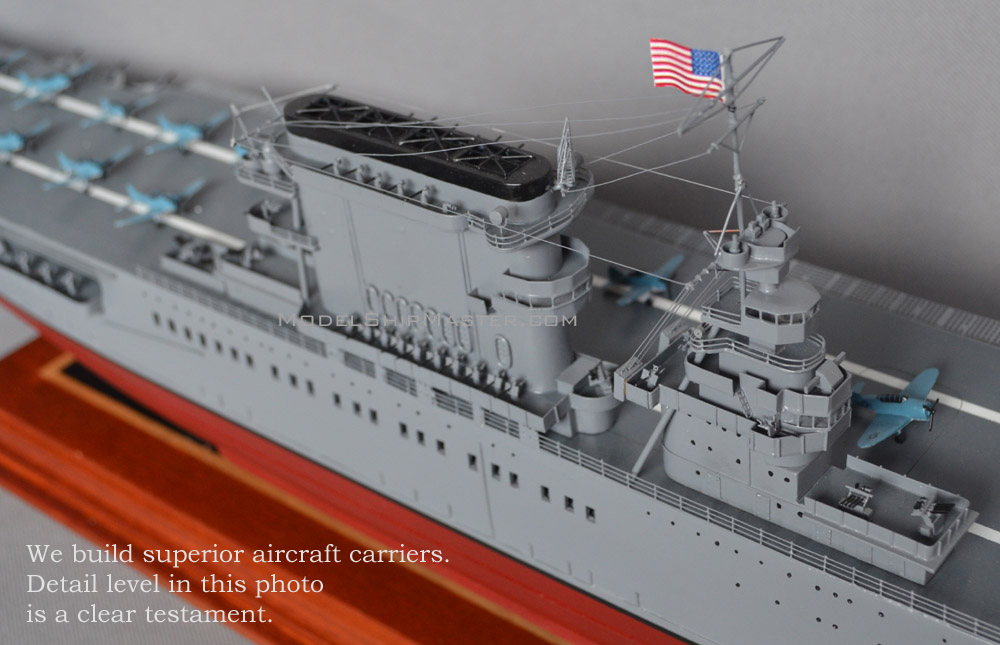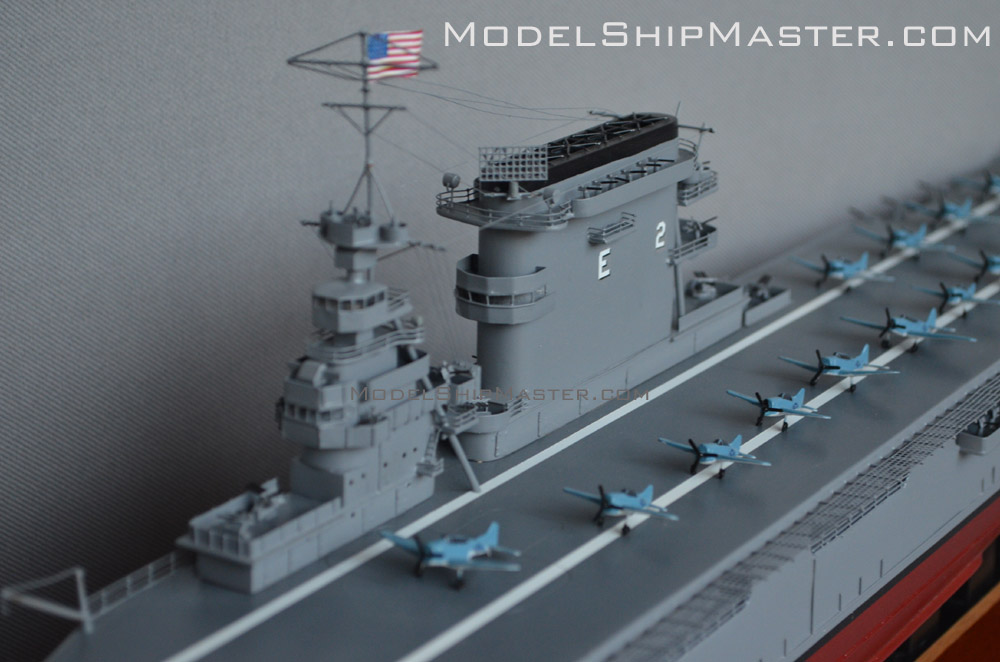|
USS LEXINGTON
USS Lexington was
an Essex-class aircraft carrier built during World War
II for the United States Navy. The carrier
was launched on October 3, 1925 and commissioned
December 14, 1927.
The Lexington class had two ships in
the class: USS Lexington and USS Saratoga. Both
aircraft carriers saw action in WWII and
were instrumental in demonstrating the value of aircraft
carriers in naval warfare.

By mid-April 1942, US naval planners had determined that
the Japanese planned to continue their expansion south.
To counter that move, the US established Task Force 17
centered on the USS Yorktown and the USS Lexington. Rear Admiral Aubrey W. Fitch commanded
carrier operations from the USS Lexington.

In March and April, from intelligence, admiral
Chester Nimitz deployed the aircraft carrier USS
Lexington and Yorktown
to the South Pacific in order to stop the Japanese advance. The
result was the Battle of Coral Sea, the first
aircraft carrier
battle in history.
On the morning of May 7, planes from USS Lexington the
other aircraft carrier destroyed Shoho, making it the
first Japanese carrier sunk. On May
8, aircraft from the main bodies of the two opposing fleets
found each other. American aircraft inflicted
severe damage on Shokaku. In return, the Japanese
hit the USS Lexington with two torpedoes and two bombs.
Although USS Lexington’s
flight deck was restored to service, a series of
explosions ripped through the ship soon after. When the fires became uncontrollable, the
aircraft carrier was declared a total loss. Five torpedoes from an
US
escorting destroyer sent USS Lexington to the bottom.
The USS Lexington lost 200 crew members and 35 aircraft.

The Battle of the Coral
Sea was a strategic victory for the US and its allies;
Japan did not capture Port Moresby and never again
pushed that far south. The battle was the first major
setback of the war for Imperial Japanese Navy. It halted
Japan's relentless advancement in the Pacific. Aside from the tactical
and strategic results, the battle in the Coral Sea is
notable because it was the first naval engagement in
history where opposing ships never came within sight of
each other. The battle ushered in a new form of
naval warfare in which big-gun ships had no role, with
all action taking place at long range via
airplanes.


The USN learned much from
the sinking of the USS Lexington, in particular regarding damage
control practices and the dangers of flammable fumes
spreading through a damaged ship. These lessons would
help save carriers in future battles, such as
USS Enterprise on several occasions, and USS Franklin in
1945.
At 3,000 meters, USS Lexington was too deep for the wreck salvagers. When
Paul Allen's team found her on March 4, 2018, she
was well preserved, with gun mounts and many aircraft in good condition.
.jpg)
This primarily wood
USS Lexington model is 30" long x
9" tall x 5.5" wide (1/350
scale)
$3,170
 Shipping and insurance in
the contiguous USA included.
Other places: $300 flat rate. This model is in stock and
can be shipped within five business days.
Shipping and insurance in
the contiguous USA included.
Other places: $300 flat rate. This model is in stock and
can be shipped within five business days.
Nobody builds better
warships than ModelShipMaster.
Click
here
to find out. And click
here for our guarantee.

Learn more about the
USS Lexington aircraft carrier here:
https://en.wikipedia.org/wiki/USS_Lexington_(CV-2)
|